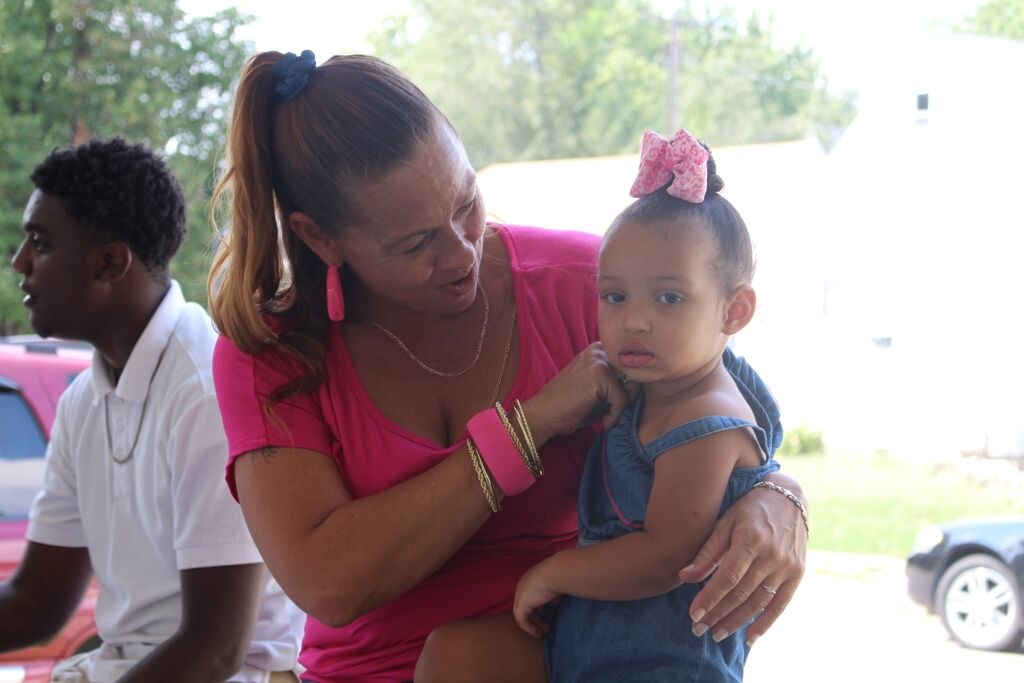Just reward: How the past haunts one Illinois mother searching for a second chance
Should a teenage crime of desperation shackle an ex-offender for life? This is the question facing Illinois state politicians, who, due to a law they passed in 2011, must reckon with the likes of Lisa Creason, a 43-year-old mother from Decatur, Illinois.
By all accounts, Lisa Creason is a respected member of her community. She’s mother to three children whose father was killed tragically in 2002 by a stray bullet. That spurred her to found a successful nonprofit combating youth violence, which joined with local churches and other nonprofits to form a chapter of CeaseFire in Decatur.
In 2012, Creason enrolled in nursing school with the hope of securing a better-paying job. She knew this was the key to moving her family out of her low-income neighborhood, which was plagued with gang violence.
When she graduated from nursing school, Creason called her mother in tears.
“I will never forget coming home from the school and calling my mom and telling her I passed the final. I’m done,” Creason said.
“I’m actually going to be able to buy my kids a home, [I thought]. I’m actually going to be able to afford to move my kids out of the ‘hood.”
But her optimism was short-lived. Less than a month after graduating with an associate degree in applied science in nursing from Richland Community College, Creason was denied the chance to clear the last hurdle to becoming a registered nurse: a state test granting her a license to practice.
Why? A crime she committed more than two decades ago.
A crime of survival leads to a scarlet letter
At age 19, Creason tried to steal money from a Subway cash register in Decatur because she needed to feed her daughter. At age 20, she was sentenced to three years in prison on attempted robbery and an unrelated burglary charge. She got out on work release a year later.
That conviction is now the only thing that stands between Creason and her dream.

In 2011, state lawmakers passed legislation adding “forcible felonies” to the list of crimes for which health care workers can be denied licenses to practice under the Health Care Worker Background Check Act. This crime classification includes attempted robbery, barring Creason and hundreds like her from licensure.
Creason’s situation is maddening. Though she can’t legally practice as a registered nurse, she has been working as a certified nursing assistant for a decade after obtaining a state waiver. But her earnings aren’t enough for Creason to be completely independent. She still relies on welfare programs to care for her two sons, as well as a teenage boy over whom she has custody.
“I just want to go to work as a nurse, take care of my kids and get off of government assistance,” Creason said. “That’s it.”
Her struggle was of little interest to the state.
“To be told after all we’ve been through that I wasn’t good enough … it was devastating,” she said.
“My nine-year-old didn’t have any idea of my criminal history, and I had to sit down with him and talk to him about that, because of all this. He didn’t understand.”
Fighting for a second chance
But state officials may have underestimated Creason’s determination.
A single mother of three children who founded a successful community organization, worked two jobs and attended classes part time, all in hopes of becoming a registered nurse, Creason can only be described as a force of nature.
When this unstoppable force hit the immovable object of the state, she pushed even harder.
Creason’s struggle took the form of Senate Bill 42. The bill would allow those with forcible felonies on their records (other than sexual offenses) to seek waivers from the state to obtain health care worker licenses, provided the convictions occurred more than five years prior to applying for a waiver. The Illinois Senate passed the bill on March 26.
The legislation now rests in the House Rules Committee and has 27 co-sponsors.
But nursing is just one occupation under which rehabilitated ex-offenders are severely restricted in Illinois. If an Illinoisan has a felony on her record, the state is permitted to deny her the license required to practice as an architect, athletic trainer, nail technician, barber and many other occupations. Given that nearly all of the tens of thousands of Illinoisans convicted of felonies every year will return to their communities at some point, these barriers pose a huge threat to successful reintegration.
The state must overhaul its occupational licensing rules, especially when it comes to ex-offenders in search of honest employment.
Illinois should also continue to expand the availability of record sealing. When a person’s criminal record is “sealed,” only law-enforcement agencies granting occupational licenses and parties with court orders are able to see someone’s criminal record. To get his or her record sealed, a qualifying offender must petition the court where the charges against him or her were brought and must supply that court with a variety of documents and information, including drug tests. For many ex-offenders, sealed records can mean the difference between gainful employment and reverting to bad habits.
Research shows that finding work is crucial to lowering the rate of recidivism among ex-offenders, which is important given that nearly 50 percent of ex-offenders in Illinois return to prison within three years.
Recidivism doesn’t come cheap. The Illinois Sentencing Policy Advisory Council, or SPAC, estimates one recidivism event costs an average of nearly $120,000, which is borne by taxpayers, the victim of the crime and the state economy as a whole.
Moreover, those Illinoisans who recidivate commit a large portion of all crimes in the state – individuals with no previous arrests made up a mere 11 percent of convictions in Illinois in 2013, according to SPAC.
For budgetary reasons, as well as for public safety and the sake of struggling ex-offenders and their families, rehabilitation should be the end goal of Illinois’ criminal-justice system. That means dismantling barriers to success for Decatur moms, Chicago dads and anyone in between who has made a bad choice in his or her past, but is ready and willing to move on.
“You should never give up on trying to move forward,” Creason said. “You should never accept being in poverty because officials feel like you shouldn’t be able to move forward.”

Have a story to share?
Tell us how a state or local policy affects your life.
If we decide to feature your story, one of our writers will reach out to you directly.
